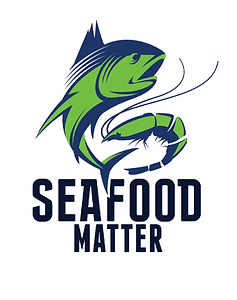
FISHING INDUSTRY ASSOCIATION
PAPUA NEW GUINEA
RSP Pillars or Criterions
Our assurance model is aligned with our mission and vision, which enables us to improve our fisheries practices continually. Our Responsible Sourcing Policy (RSP) is the initiative we use for that.
FIA PNG members are committed to achieving the highest environmental and social standards. To demonstrate our performance and accountability against our vision, mission and values, we developed the RSP which uses the Marine Stewardship Council (MSC) Standard + three additional criteria which all FIA PNG tuna members must meet:

The Marine Stewardship Council (MSC) fishery certification ensures that a wild-caught fishery is managed sustainably, protecting fish stocks and marine ecosystems while allowing for responsible fishing practices. MSC certification verifies that fisheries are well-managed and responsibly harvested, ensuring there are enough fish left in the sea to reproduce and maintain healthy populations.

Social Responsibility and Crew Welfare
FIA PNG started a Crew Welfare and Labour onboard conditions assessment in November 2019. Frabelle Fishing joined this initial assessment with their tuna fleet. Later in October 2020, RD Fishing also joined this assessment with their fleet under the methodology and benchmark tool of Seafoodmatter.
In 2018, FIA PNG committed to ensuring Labor rights and crew welfare are respected, and crew members have decent working conditions onboard according to international regulations, guidance and standards available. After an initial assessment in November 2019, FIA PNG has therefore decided implement by producing policies, procedures and audit tool to assess mitigation measures and progress on the FIA tuna fleet fishing on the PNG Economic Exclusive Zone (EEZ) and the Archipelagic Waters (AW). FIA aims to set up a baseline procedure that should be adopted, implemented, and improved for each FIA fishing company member and FIA fishing company’s partner, for Social Responsibility and Crew Welfare.
Since 2020, FIA PNG aim that companies achieve and maintain the highest levels of performance with respect to fair, socially responsible, and responsible labour practices.
After maintaining a FIA PNG Group Certification of the FISH standard from February 2023 to February 2026, FIA PNG tuna fleet owners and members decided to manage their own certification, obtaining their individual FISH standard certification. In this manner, each member manages their own risk, while FIA PNG RSP recognises this audit and certificates with no need to audit members again.
Marine Litter and Fishing Gear
A benchmark tool for monitoring marine litter and fishing gear was developed in 2019 by Seafoodmatter. The tool aims to mitigate the FIA PNG tuna fleet’s fishing operations to the environment while we improve our fishing practices. This tool is also a valuable sources that have economic implications, ensuring long-term economic benefits for fishing communities and marine ecosystems.
The benchmark tool is based on more than 30 good practices, code of conduct, commitments, regulations, and standards (ei, MARPOL, FAO marking of fishing gear, Global Ghost Gear Initiative best practices for fisheries, ISSF CMM for FADs, etc.)
Traceability and Real Time Data Sharing
FIA PNG tuna fleet guarantee full traceability and transparency across the fishing operation from setting the net to landing or discharging tuna fish. This process with real time technology – providing essential information on the journey of your tuna fish. The Fisheries Information Management System (FIMS) is the platform that collect this information. FIMS also is verified by the Global Dialogue on Seafood Traceability (GDST) interoperatibility test V 1.0 (first mile wild)
Using the most advanced and secured technology available to provide consumers with complete trust on the tun fish they are buying. To increase our transparency, we are the only tuna fishery globally that share the Vessel Monitoring System (VMS) in real time with the Global Fishing Watch.
